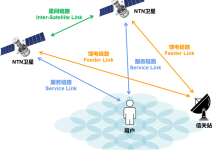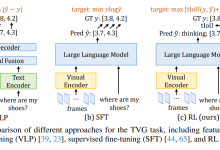在 AI 应用开发平台领域,Dify 凭借出色的易用性占据了一席之地,但开发者对开源替代方案的需求始终存在。字节跳动推出的开源版 Coze(OpenCoze)凭借多模态支持、插件生态与灵活部署特性,成为备受关注的新选择。本文将以程序员视角,从技术架构、部署实践到功能对比,通过代码示例详解开源版 Coze 的本地化部署流程,为开发者提供 Dify 之外的技术选型参考。
核心架构解析:开源版 Coze 的技术特性
开源版 Coze 在架构设计上融合了现代 AI 应用开发平台的核心要素,同时通过模块化设计实现了高度的灵活性与可扩展性。理解其架构特性是顺利部署与高效使用的基础。
架构核心代码与解析:
from typing import List, Dict, Callable, Optional
from enum import Enum
import asyncio
import json
# 核心组件类型定义
class ComponentType(Enum):
"""Coze组件类型枚举"""
LLM = "llm" # 大语言模型
EMBEDDER = "embedder" # 嵌入模型
RETRIEVER = "retriever" # 检索组件
PLUGIN = "plugin" # 功能插件
WORKFLOW = "workflow" # 工作流引擎
# 应用配置数据结构
class AppConfig:
"""Coze应用配置结构"""
def __init__(self, app_id: str, name: str):
self.app_id = app_id
self.name = name
self.components = {} # 组件配置
self.workflow = None # 工作流定义
self.plugins = [] # 启用的插件
self.settings = { # 全局设置
"timeout": 30,
"max_tokens": 4096,
"temperature": 0.7
}
def add_component(self, comp_type: ComponentType, config: Dict):
"""添加组件配置"""
self.components[comp_type.value] = config
def to_dict(self) -> Dict:
"""转换为字典用于序列化"""
return {
"app_id": self.app_id,
"name": self.name,
"components": self.components,
"workflow": self.workflow,
"plugins": self.plugins,
"settings": self.settings
}
# Coze核心引擎
class CozeEngine:
"""开源Coze核心引擎实现"""
def __init__(self, config_path: str):
self.config = self._load_config(config_path)
self.components = self._init_components()
self.event_loop = asyncio.get_event_loop()
def _load_config(self, config_path: str) -> Dict:
"""加载配置文件"""
with open(config_path, "r", encoding="utf-8") as f:
return json.load(f)
def _init_components(self) -> Dict:
"""初始化所有组件"""
components = {}
# 初始化LLM组件
if "llm" in self.config["components"]:
llm_config = self.config["components"]["llm"]
components["llm"] = self._init_llm(llm_config)
# 初始化嵌入模型
if "embedder" in self.config["components"]:
embed_config = self.config["components"]["embedder"]
components["embedder"] = self._init_embedder(embed_config)
# 初始化检索组件
if "retriever" in self.config["components"]:
retriever_config = self.config["components"]["retriever"]
components["retriever"] = self._init_retriever(retriever_config)
# 加载插件
components["plugins"] = self._load_plugins(self.config.get("plugins", []))
return components
def _init_llm(self, config: Dict):
"""初始化LLM组件(支持多模型)"""
model_type = config.get("type", "openai")
if model_type == "openai":
from coze.llms.openai import OpenAILLM
return OpenAILLM(
api_key=config.get("api_key"),
model_name=config.get("model_name", "gpt-3.5-turbo"),
base_url=config.get("base_url")
)
elif model_type == "local":
from coze.llms.local import LocalLLM
return LocalLLM(
model_path=config.get("model_path"),
device=config.get("device", "auto")
)
raise ValueError(f"不支持的LLM类型: {model_type}")
def _init_embedder(self, config: Dict):
"""初始化嵌入模型"""
# 实际实现中会根据配置初始化不同嵌入模型
from coze.embedders.base import BaseEmbedder
return BaseEmbedder(config)
def _init_retriever(self, config: Dict):
"""初始化检索组件"""
# 实际实现中会根据配置初始化向量数据库连接
from coze.retrievers.base import BaseRetriever
return BaseRetriever(config)
def _load_plugins(self, plugin_names: List[str]) -> List:
"""加载插件"""
plugins = []
for name in plugin_names:
try:
plugin_cls = self._import_plugin(name)
plugins.append(plugin_cls())
except ImportError:
print(f"警告: 插件 {name} 未找到,已跳过")
return plugins
def _import_plugin(self, plugin_name: str):
"""动态导入插件"""
module = __import__(f"coze.plugins.{plugin_name}", fromlist=["Plugin"])
return module.Plugin
async def run_workflow(self, app_config: AppConfig, user_input: str) -> Dict:
"""运行应用工作流"""
# 1. 检索相关信息(如果配置了检索组件)
context = {}
if "retriever" in self.components and "retriever" in app_config.components:
retriever = self.components["retriever"]
context["documents"] = await retriever.retrieve(
query=user_input,
limit=app_config.components["retriever"].get("limit", 3)
)
# 2. 执行插件(如果有前置插件)
for plugin in self.components["plugins"]:
if plugin.should_run(user_input, context):
plugin_result = await plugin.run(user_input, context)
context[f"plugin_{plugin.name}"] = plugin_result
# 3. 调用LLM生成回答
llm = self.components["llm"]
response = await llm.generate(
prompt=user_input,
context=context,
temperature=app_config.settings["temperature"],
max_tokens=app_config.settings["max_tokens"]
)
return {
"response": response,
"context": context,
"metadata": {
"model_used": llm.model_name,
"timestamp": asyncio.get_event_loop().time()
}
}
开源版 Coze 的核心架构呈现三大特性:首先是多模态组件体系,通过统一接口支持多种 LLM、嵌入模型与检索引擎,既兼容 OpenAI 等 API 服务,也支持本地模型部署;其次是插件化设计,允许通过动态导入机制扩展功能,如网页爬取、数据计算等实用工具;最后是可视化工作流引擎,支持通过配置定义 AI 应用的处理流程,无需硬编码即可实现复杂逻辑。与 Dify 相比,Coze 在插件生态与多模型管理上更为灵活,特别是对本地大模型的支持更加完善,这对注重数据隐私的场景尤为重要。
本地化部署实践:从环境配置到服务启动
开源版 Coze 的本地化部署流程兼顾了易用性与可定制性,通过容器化与配置驱动实现快速部署,同时保留足够的灵活性满足个性化需求。
部署核心代码与步骤:
# 1. 克隆代码仓库
git clone https://github.com/bytedance/OpenCoze.git
cd OpenCoze
# 2. 创建环境配置文件
cat > .env << EOF
# 基础配置
PORT=8000
ENV=production
LOG_LEVEL=info
# 数据库配置
DB_HOST=localhost
DB_PORT=5432
DB_USER=coze
DB_PASSWORD=your_secure_password
DB_NAME=coze
# 默认LLM配置
LLM_TYPE=local # 可选: local, openai, anthropic
LOCAL_MODEL_PATH=/path/to/your/local/model
EMBEDDING_MODEL=BAAI/bge-large-en-v1.5
# 存储配置
VECTOR_STORE=chroma # 可选: chroma, pinecone, milvus
STORAGE_DIR=./data
EOF
# 3. 使用Docker Compose启动服务
# 编辑docker-compose.yml确认配置
cat docker-compose.yml
# 启动所有服务
docker-compose up -d
# 4. 初始化数据库
docker-compose exec api python -m coze.cli init_db
# 5. 检查服务状态
docker-compose ps
# 6. 查看日志确认启动成功
docker-compose logs -f api
# 自定义模型配置示例 (configs/models/local_llm.py)
from coze.llms.local import LocalLLM
from transformers import AutoTokenizer, AutoModelForCausalLM
class CustomLocalLLM(LocalLLM):
"""自定义本地LLM实现"""
def __init__(self, model_path: str, device: str = "auto"):
super().__init__(model_path, device)
self._load_model()
def _load_model(self):
"""加载自定义模型与分词器"""
self.tokenizer = AutoTokenizer.from_pretrained(
self.model_path,
trust_remote_code=True
)
self.model = AutoModelForCausalLM.from_pretrained(
self.model_path,
device_map=self.device,
trust_remote_code=True,
load_in_4bit=True # 启用4bit量化节省显存
)
# 模型预热
self.model.eval()
async def generate(self, prompt: str, context: Dict = None, **kwargs) -> str:
"""生成文本实现"""
inputs = self.tokenizer(prompt, return_tensors="pt").to(self.model.device)
# 配置生成参数
generation_args = {
"max_new_tokens": kwargs.get("max_tokens", 1024),
"temperature": kwargs.get("temperature", 0.7),
"do_sample": True,
"pad_token_id": self.tokenizer.eos_token_id
}
# 生成回答
outputs = self.model.generate(** inputs, **generation_args)
response = self.tokenizer.decode(
outputs[0][len(inputs["input_ids"][0]):],
skip_special_tokens=True
)
return response
# 注册自定义模型
def register_custom_llms():
from coze.registry import llm_registry
llm_registry.register("custom_local", CustomLocalLLM)
部署过程的关键要点包括:环境配置阶段需明确模型类型(本地 / API),本地模型需指定路径并确保硬件满足运行要求;容器化部署通过 Docker Compose 简化了多服务协同,但需根据硬件配置调整 API 服务的资源限制;数据库初始化会创建必要的表结构与默认数据,生产环境需修改默认密码增强安全性。对于需要自定义模型的场景,可通过继承 BaseLLM 类实现适配,如示例中针对国产大模型的 4bit 量化加载方案。部署完成后,建议通过 API 测试工具验证基础功能:发送简单请求检查模型响应,测试插件调用是否正常,验证检索功能是否返回正确结果。
功能对比与优势分析:为何选择开源版 Coze
在实际开发场景中,开源版 Coze 与 Dify 的差异体现在功能特性、扩展性与适用场景等多个维度。通过定量对比与定性分析,能更清晰地判断两者的适用边界。
功能对比代码与分析:
# 功能对比测试框架
import time
import requests
from typing import Dict, List
class PlatformTester:
"""AI平台功能测试工具"""
def __init__(self, coze_url: str = "http://localhost:8000",
dify_url: str = "http://localhost:5001"):
self.coze_url = coze_url
self.dify_url = dify_url
self.coze_headers = {"Authorization": "Bearer coze_token"}
self.dify_headers = {"Authorization": "Bearer dify_token"}
def test_workflow_execution(self, app_id: str, input_text: str) -> Dict:
"""测试工作流执行性能与结果质量"""
# 测试Coze
coze_start = time.time()
coze_response = requests.post(
f"{self.coze_url}/api/apps/{app_id}/run",
json={"input": input_text},
headers=self.coze_headers
).json()
coze_time = time.time() – coze_start
# 测试Dify
dify_start = time.time()
dify_response = requests.post(
f"{self.dify_url}/v1/chat/completions",
json={
"app_id": app_id,
"messages": [{"role": "user", "content": input_text}]
},
headers=self.dify_headers
).json()
dify_time = time.time() – dify_start
return {
"coze": {
"response_time": coze_time,
"has_context": "context" in coze_response,
"plugin_used": any("plugin" in k for k in coze_response.get("context", {}).keys()),
"text_length": len(coze_response.get("response", ""))
},
"dify": {
"response_time": dify_time,
"has_context": "context" in dify_response,
"plugin_used": "plugins" in dify_response,
"text_length": len(dify_response.get("choices", [{}])[0].get("message", {}).get("content", ""))
}
}
def test_plugin_extensibility(self) -> Dict:
"""测试插件扩展能力"""
# 检查Coze插件列表
coze_plugins = requests.get(
f"{self.coze_url}/api/plugins",
headers=self.coze_headers
).json()
# 检查Dify工具列表
dify_tools = requests.get(
f"{self.dify_url}/api/tools",
headers=self.dify_headers
).json()
return {
"coze": {
"plugin_count": len(coze_plugins),
"custom_plugin_support": any(p.get("type") == "custom" for p in coze_plugins)
},
"dify": {
"tool_count": len(dify_tools),
"custom_tool_support": any(t.get("type") == "custom" for t in dify_tools)
}
}
def run_comparison_tests(self, test_cases: List[Dict]) -> Dict:
"""运行完整对比测试"""
workflow_results = []
for test in test_cases:
result = self.test_workflow_execution(
test["app_id"], test["input"]
)
workflow_results.append({
"test_case": test["name"],
"results": result
})
plugin_results = self.test_plugin_extensibility()
return {
"workflow_tests": workflow_results,
"plugin_tests": plugin_results,
"summary": self._generate_summary(workflow_results, plugin_results)
}
def _generate_summary(self, workflow_results: List, plugin_results: Dict) -> Dict:
"""生成测试摘要"""
coze_avg_time = sum(r["results"]["coze"]["response_time"]
for r in workflow_results) / len(workflow_results)
dify_avg_time = sum(r["results"]["dify"]["response_time"]
for r in workflow_results) / len(workflow_results)
return {
"average_response_time": {
"coze": coze_avg_time,
"dify": dify_avg_time,
"coze_faster_by": (dify_avg_time – coze_avg_time) / dify_avg_time * 100 if dify_avg_time > 0 else 0
},
"plugin_support": {
"coze": plugin_results["coze"]["plugin_count"],
"dify": plugin_results["dify"]["tool_count"]
}
}
# 运行对比测试
if __name__ == "__main__":
tester = PlatformTester()
test_cases = [
{
"name": "基础问答测试",
"app_id": "basic_qa",
"input": "什么是大语言模型?"
},
{
"name": "检索增强测试",
"app_id": "rag_app",
"input": "请总结最新的AI发展趋势"
},</doubaocanvas>
 网硕互联帮助中心
网硕互联帮助中心






评论前必须登录!
注册